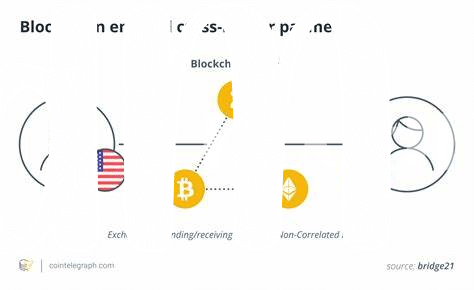Overview of Uk Bitcoin Regulations 🇬🇧

The UK has established a regulatory framework to oversee the use of Bitcoin within its borders. This includes guidelines on exchanges, taxation, and consumer protection, positioning the country as a hub for cryptocurrency innovation. With a focus on fostering a secure environment for digital asset transactions, the regulations aim to balance innovation with investor protection. Compliance with these rules is essential for businesses and individuals engaging in Bitcoin-related activities in the UK. As the cryptocurrency landscape continues to evolve, staying informed about UK Bitcoin regulations is crucial for navigating this dynamic sector effectively.
Key Compliance Requirements for Cross-border Transfers 💼
When engaging in cross-border Bitcoin transfers, it is crucial to adhere to the key compliance requirements to ensure regulatory alignment and mitigate potential risks. These requirements often encompass aspects such as verifying the identities of parties involved, monitoring transactions for suspicious activities, and complying with anti-money laundering regulations. By understanding and following these compliance protocols diligently, stakeholders can navigate the complexities of cross-border Bitcoin transactions more confidently and transparently. Embracing these standards not only enhances trust within the ecosystem but also contributes to the sustainability and legitimacy of Bitcoin as a global medium of exchange. Keeping abreast of evolving compliance guidelines is essential for staying ahead of regulatory changes and fostering a compliant and secure environment for cross-border Bitcoin transfers.
Understanding Anti-money Laundering (aml) Protocols 🔍

Ensuring compliance with Anti-money Laundering (AML) protocols is a critical aspect of facilitating secure cross-border Bitcoin transfers. AML protocols are designed to detect and prevent activities associated with money laundering and other financial crimes, safeguarding the integrity of the financial system. By adhering to AML procedures, businesses and individuals involved in Bitcoin transactions can contribute to the overall transparency and legitimacy of the digital asset ecosystem. Familiarity with AML requirements helps mitigate risks and ensures that transfers are conducted in accordance with regulatory standards. Implementing robust AML measures is essential for promoting trust and accountability within the realm of cross-border Bitcoin transfers.
Importance of Kyc Procedures in Bitcoin Transactions 🛡️

KYC procedures play a crucial role in enhancing the security and trustworthiness of Bitcoin transactions. By verifying the identities of individuals engaging in these transactions, KYC protocols help mitigate risks associated with illicit activities like money laundering and terrorist financing. This ensures compliance with regulatory requirements and fosters a more transparent and accountable ecosystem for digital currency transactions. By incorporating robust KYC measures, stakeholders can contribute to the legitimacy and credibility of the Bitcoin market, ultimately promoting a safer and more regulated environment for cross-border transfers. To delve deeper into the legislative landscape impacting Bitcoin cross-border money transfers, check out the comprehensive resource on bitcoin cross-border money transfer laws in Ukraine.
Risks and Challenges of Cross-border Bitcoin Transfers ⚠️
Cross-border Bitcoin transfers come with a unique set of risks and challenges that both individuals and businesses must navigate. One key concern is the volatility of the market, as the value of Bitcoin can fluctuate rapidly during cross-border transactions. This exposes parties to potential financial losses if not timed correctly. Additionally, the regulatory landscape for Bitcoin varies across countries, adding complexity to compliance requirements when transferring funds internationally. Ensuring compliance with different regulations in each jurisdiction can be a daunting task, requiring a deep understanding of the legal frameworks involved.
Moreover, the cross-border nature of Bitcoin transfers may also attract illicit activities such as money laundering and terrorism financing. Ensuring the legitimacy of transactions and the identities of the parties involved becomes crucial in mitigating these risks. Balancing innovation with security in the fast-paced world of cryptocurrency poses a continuous challenge for those engaging in cross-border Bitcoin transfers.
Future Trends in Regulatory Compliance for Bitcoin 📈

Future Trends in Regulatory Compliance for Bitcoin point towards a tightening of regulations and an increased focus on transparency and accountability. Regulators are adapting to the evolving landscape of cryptocurrencies, aiming to strike a balance between innovation and risk mitigation. As the industry matures, we can expect to see more stringent compliance measures, enhanced reporting requirements, and greater collaboration between authorities globally. The use of advanced technologies like blockchain analytics and artificial intelligence will likely play a crucial role in ensuring compliance in cross-border Bitcoin transfers. It is essential for businesses and individuals engaging in Bitcoin transactions to stay updated on these regulatory changes to avoid potential legal implications. Keeping abreast of the shifting regulatory environment will be key to navigating the complex compliance landscape in the future.
bitcoin cross-border money transfer laws in united states
